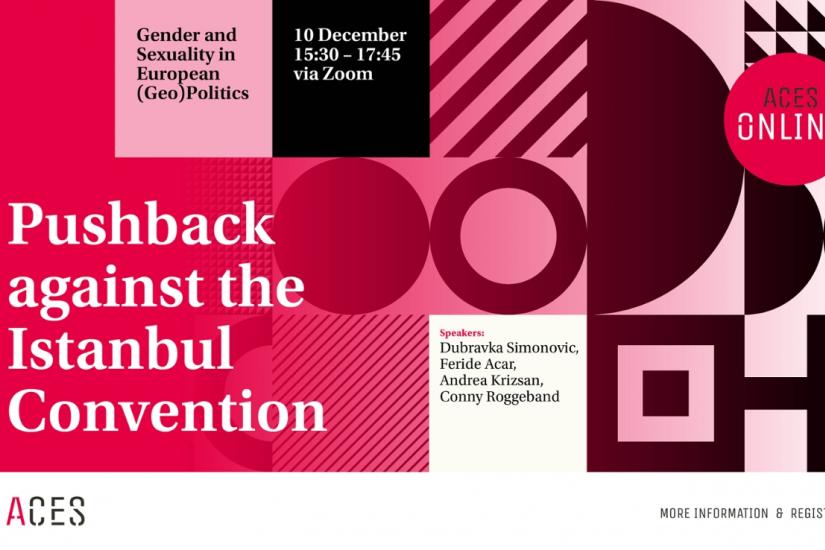
This event is organized by the Amsterdam Centre for European Studies - ACES at the University of Amsterdam in collaboration with the Democracy Institute, Central European University, and it is the third event of ACES Gender and Sexuality in European (Geo)Politics lecture series.
In this webinar we discuss why and how the Istanbul Convention became such a central site of contestation over gender equality, who are the actors that oppose the convention and what strategies and arguments do they use? Webinar conveners are Conny Roggeband (UvA) and Andrea Krizsan (Central European University).
Opened for signature in May 2011, the Convention is to date the most comprehensive international policy instrument addressing violence against women. However, its signature and ratification became a major site of contention about gender equality in many countries of Europe. Over the past five years opposition to the Convention skyrocketed particularly in Central and Eastern Europe and in several countries attempts to block ratification have been successful (Bulgaria, Hungary, Slovakia, Latvia). Also, countries that previously ratified the Convention like Turkey or Poland have announced plans for withdrawal.
The struggles around the Istanbul Convention are remarkable and puzzling as the opposition to the Convention hardly concerns policies combatting violence against women and domestic violence, the core issue of the IC. Instead, opponents focused on the gender transformative components of the Convention, representing the convention as a Trojan horse aimed at spreading “gender ideology”.
In this webinar we discuss why and how the Istanbul Convention became such a central site of contestation over gender equality, who are the actors that oppose the convention and what strategies and arguments do they use? And, most importantly, what are the implications of the fierce opposition, both for the struggle against gender-based violence and the women’s rights organizations working on these issues, and for policies addressing violence against women and domestic violence?
The first part of the seminar (15.30-16.30) will bring together two renowned international experts to discuss these questions. Dubravka Simonovic is the United Nations Special Rapporteur on violence against women, its causes and consequences and member of the UNHCR Advisory Group on Gender, Forced Displacement and Protection. Feride Acar is Former President of the Group of Experts of Action against Violence against Women and Domestic Violence (GREVIO) of the Council of Europe, former chair of the UN CEDAW Committee and faculty member at the Department of Political Science and Public Administration of Middle East Technical University (METU).
The second part of the seminar will focus on national processes of contestation in four countries: Bulgaria, Croatia, Hungary and Poland. Andrea Krizsan (Central European University) and Conny Roggeband (UvA) will discuss some of the central findings of their forthcoming book “Keeping out the Trojan Horse: Re-politicizing gender in the context of the Istanbul Convention” (Palgrave). A particular focus will be on understanding these contestations in the context of democratic backsliding.
The event will be moderated by prof.dr. Mieke Verloo, Professor of Comparative Politics and Inequality Issues at Radboud University in the Netherlands, and Non-Residential Permanent Fellow at the IWM, Institute for Human Sciences in Vienna.